The Royal Women’s Hospital
The Royal Women’s Hospital is Australia’s largest hospital with a sole focus on the improvement of the health of women of all ages and cultures, and newborn babies.
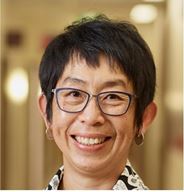
Professor Jeanie Cheong
VICS Convenor
Jeanie Cheong is a consultant neonatologist with expertise in neonatal neurology, neuroimaging and long term follow up. Jeanie is an Professor with the Department of Obstetrics & Gynaecology at the University of Melbourne and is based at the Royal Women’s Hospital in Melbourne, where she is the lead Clinician in the High Risk Newborn Follow Up Clinic.
Jeanie’s research expertise is in the long-term health and developmental outcomes of high-risk infants especially those born preterm. She led the first Australian study of moderate and late preterm children, findings of which have significantly increased the understanding of development sequelae of a previously understudied group of children.
Jeanie is the Co-Group Leader of the Victorian Infant Brain Studies group, a research team based at the Murdoch Children’s Research Institute in Melbourne, which focuses on understanding brain development of preterm newborns and improving their outcomes through various intervention studies. She is also the Convenor of the Victorian Infant Collaborative Study, a world-leading research team in epidemiological cohorts of extremely preterm newborns.
Jeanie is the Director of the CRE in Newborn Medicine. Leading the Executive, she will oversee all activities within the CRE and contribute to the Policy & Practice Translation Subcommittee.
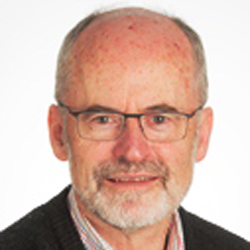
Professor Lex Doyle, MD BS MSc FRACP
VICS Chief Investigator
Professor Doyle has worked in the field of neonatal paediatrics for almost 50 years overall, and exclusively between 1978, when he was first appointed to the Department of Obstetrics and Gynaecology in the University of Melbourne, and 2006, when he ceased working in the nursery at the Royal Women’s Hospital in Melbourne.
Professor Doyle has major research interests in evaluating neonatal intensive care and its economic consequences. He has been a Chief Investigator on numerous randomised controlled trials of interventions before and after birth designed to improve the outcome for the highest-risk babies, including the tiniest and most immature babies. He had led several research groups interested in the outcome for tiny babies well beyond the nursery and into adulthood; these are the Premature Infant Follow-up Programme at the Royal Women’s Hospital and the Victorian Infant Collaborative Study Group. He is also a senior member of the Victoria Infant Brain Studies (VIBeS) Group. Professor Doyle has over 600 scientific publications, one book, and two completed theses (MSc [McMaster]; MD [Melbourne]).
In addition to his research activities, Professor Doyle is now Associate Director of Research at the Royal Women’s Hospital and is heavily involved in undergraduate and postgraduate clinical research education, mentoring, and supervision. He also chairs the Human Research Committee at the Royal Women’s Hospital.
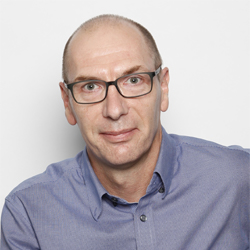
Professor Peter Anderson
Psychologist
Dr Peter Anderson is Professor of Paediatric Neuropsychology at the Monash Institute of Cognitive and Clinical Neurosciences, Monash University, and Honorary Group Leader at the Murdoch Children’s Research Institute. He is Director of the Victorian Infant Brain Studies (VIBeS) team, which has an international reputation for studying the impact brain injury and brain development has on cognitive, motor, educational and behavioural outcomes in high-risk infants. Prof Anderson is on the executive of the National Health and Medical Research Council (NHMRC) Centre for Research Excellence in Newborn Medicine. He is also the senior psychologist in the Victorian Infant Collaborative Study Group (VICS), chair of the Australian Paediatric Neuropsychology Research Network, board director of the Perinatal Society of Australia and New Zealand, and member of the Australian and New Zealand Neonatal Network Follow-up subcommittee. Dr Anderson is interested in the cognitive development of children, and for over 15 years has focused on understanding the mechanisms underlying cognitive and learning problems in children born very preterm. He is involved in observational outcome studies, longitudinal neuroimaging studies, and numerous randomised controlled trials assessing the long-term benefits and consequences of a range of obstetric, perinatal, and developmental interventions. Prof Anderson is currently a NHMRC Senior Research Fellow, and his research has been continuously funded by NHMRC since 2004. He is an ambassador for the Life’s Little Treasures Foundation, a charity dedicated to providing support, friendship and information specifically for families of children born premature or sick.
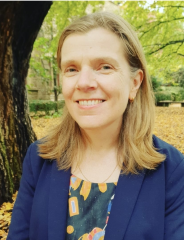
Professor Alicia Spittle
Physiotherapist and Post-Doctoral Researcher
Dr Spittle is a Physiotherapist and Post-Doctoral Researcher who leads the motor team of the Victorian Infant Brain Studies group. She is a current recipient of a National Health Medical Research Council (NHMRC) Early Career Fellowship, a Chief Investigator on two NHMRC project grants and a Chief Investigator on the NHRMC Centre of Research Excellence in Newborn Medicine.
She has been awarded over $4 million in funding over the past five years and has published in the highest-ranking journals of her field. In addition to her research, she works clinically in the neonatal intensive care unit and follow-up clinic at the Royal Women’s Hospital and as a lecturer in paediatrics at the University of Melbourne.
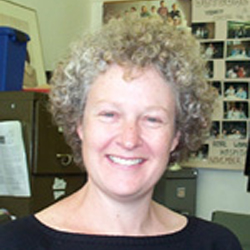
Dr Noni Davis
Paediatrician
Dr Noni Davis is a mother of two and a paediatrician with a strong interest in the follow up of premature babies.
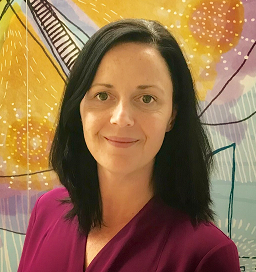
Dr Leah Hickey
Paediatrician
Dr Leah Hickey works as a Neonatal Paediatrician in the RCH Newborn Intensive Care Unit and as a Neonatal Retrieval Consultant with PIPER. She attended medical school at University College Dublin and moved to Melbourne to complete her advanced training in General Paediatrics, subspecialising in Neonatology. She was awarded her CSCST in 2010 and her FRACP in Perinatal and Neonatal Medicine in 2015. Her research interests include family-centred care, neonatal growth & nutrition, and long-term follow-up. She was awarded a Doctoral Degree from UCD in 2012 for work on the intestinal microbiome in preterm infants. She is a member of the Victorian Infant Collaborative Study group and the PSANZ High Risk Baby Follow-up Committee, which focus on long-term outcomes of high risk infants.
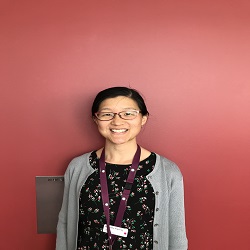
Dr Amanda Kwong
Paediatric Physiotherapist
Amanda Kwong completed her PhD at the University of Melbourne, Murdoch Children’s Research Institute and Royal Women’s Hospital investigating the use of a smartphone app, Baby Moves, for remote General Movements Assessment in infants born extremely preterm/extremely low birthweight, and term-born infants. Amanda is also a Paediatric Physiotherapist at the Newborn Follow-up Clinic at the Royal Women’s Hospital. She is currently investigating early spontaneous infant movements and their relationships with outcomes at 2 years of age, and is also involved with other studies concerning the early detection and intervention for infants at risk of cerebral palsy.
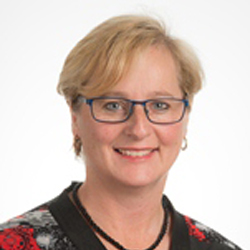
Marion McDonald
Research Nurse/Coordinator
With many years of neonatal nursing experience at RWH, I really enjoy seeing our tiny ex prems and their families coming back. It is a real privilege to be involved in long term follow up, to interact with families on this journey of growth and development has been very exciting.
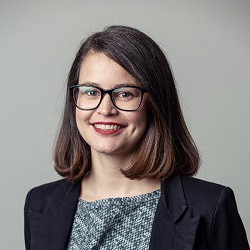
Dr Alice Burnett
Neuropsychologist
Alice is a clinical neuropsychologist who works at the Murdoch Children’s Research Institute, Royal Women’s Hospital, and Royal Children’s Hospital. Her research aims to understand and improve the cognitive skills, behaviour, and wellbeing for children who are born preterm or have other neonatal conditions. In her role as a Knowledge Translation Fellow in the Centre of Research Excellence in Newborn Medicine, Alice’s work also includes using knowledge gained through research to improve clinical practice.

Dr Lauren Pigdon
Neuropsychologist
Lauren is a psychologist who works on longitudinal follow up studies of preterm-born children at the Murdoch Children’s Research Institute. She completed a Doctor of Psychology (Clinical Neuropsychology) at Monash University in 2020, with her research focusing on the neural basis of speech and language disorders.
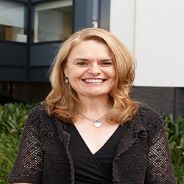
Dr Rose Boland
Postdoctoral Neonatal Nurse Researcher
Dr Rosemarie Boland is a postdoctoral neonatal nurse researcher. She completed her PhD at the University of Melbourne in 2014, investigating risk factors for mortality and serious morbidity in babies born extremely preterm in non-tertiary hospitals in Victoria over a 20-year period. Rose is now leading a program of research aimed at improving outcomes for these babies, funded by the Murdoch Children’s Research Institute. In addition to her research role, Rose works as a statewide perinatal Educator at the Paediatric Infant Perinatal Emergency Retrieval (PIPER) service- a role she has held since 1998. She has expertise and a keen interest in neonatal transport research, especially in babies born very preterm.
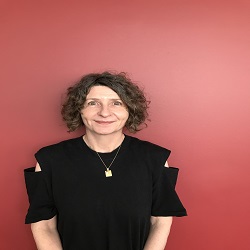
Dr Julianne Duff
Paediatrician
Julianne is a paediatrician who has been involved in the follow up of premature babies for almost 15 years. She has two teenage boys.
